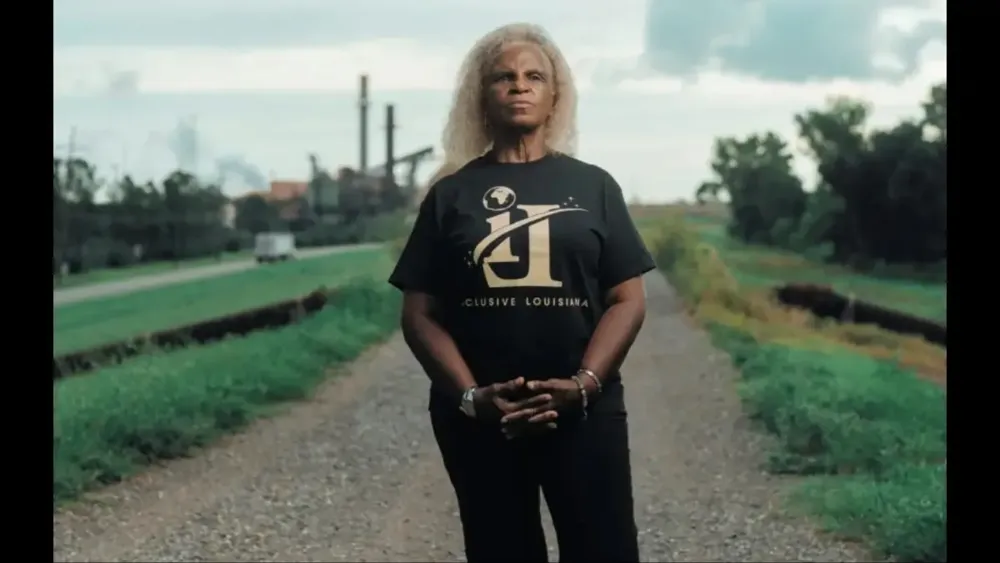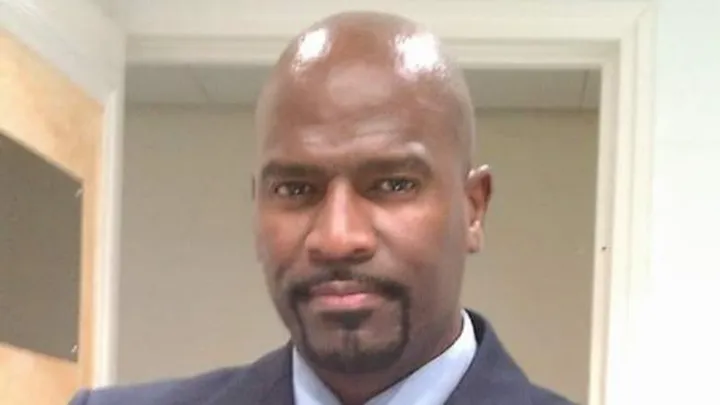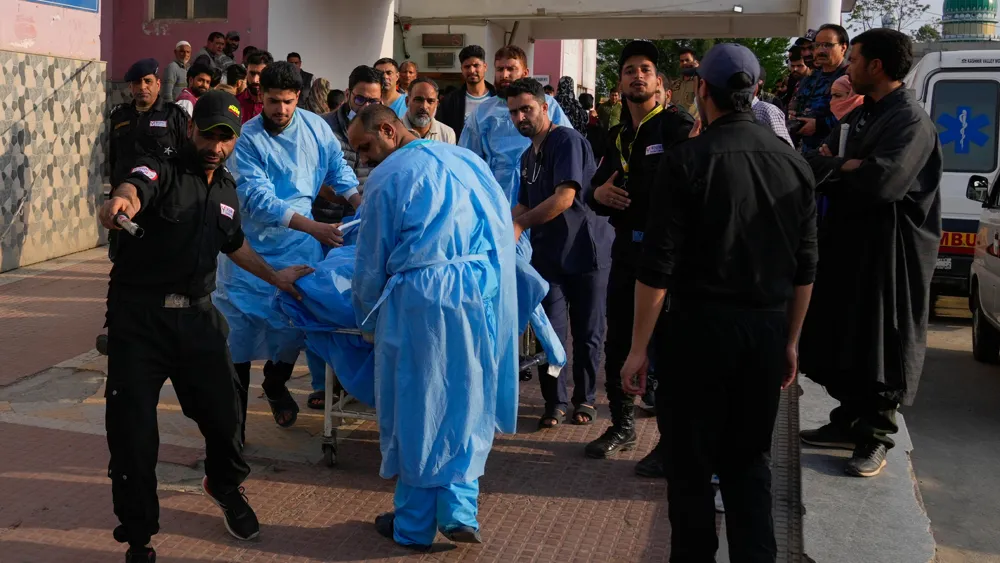‘Why Does It Always Have to Be Us?’: Court Revives Lawsuit Accusing Louisiana Parish of Sacrificing Black Neighborhoods to Toxic Industry While Shielding White Communities for 46 Years

A federal appeals court in Louisiana ruled that three organizations representing Black residents can continue with their civil rights lawsuit against St. James Parish that seeks to stop the construction and expansion of polluting petrochemical plants in majority Black neighborhoods. The Fifth Circuit Court of Appeals found that the plaintiffs sufficiently made the case for their claims that their constitutional and statutory rights have been violated by the St. James Parish government’s historic and recent practices of steering polluting industries to majority Black districts while shielding predominantly white districts from industrial development. The judges reversed a lower court ruling that found some of the plaintiffs didn’t have standing to sue or had made claims beyond the statute of limitations. Gail LeBoeuf, a founding member of Inclusive Louisiana, an environmental justice advocacy organization, lives in St. James Parish and was diagnosed with cancer in 2022. (Photo: Inclusive Louisiana) The lawsuit was filed in March 2023 by Inclusive Louisiana, an environmental advocacy nonprofit; RISE St. James, a faith-based grassroots group; and Mount Triumph Missionary Baptist Church, a local congregation in St. James Parish. It accuses the parish of discriminating against them by directing hazardous industrial development toward majority Black residential districts and Black churches where their members live, and desecrating and destroying the cemeteries of their enslaved ancestors. “The pendulum of justice has swung in our favor,” said Gail LeBoeuf, a founding member of Inclusive Louisiana. “We have been sounding the alarm for too long that a moratorium is needed to halt the expansion of any more polluting industries in our neighborhoods, and too many lives have been lost to cancer.” In his opinion on behalf of a three-judge panel, Judge Carl E. Stewart wrote that the plaintiffs’ 155-page amended complaint is “replete with allegations” of discriminatory and unequal treatment against Black residents of the parish. Observing that St. James Parish is located within an 80-mile stretch of land colloquially referred to as “Cancer Alley,” the complaint argues that the parish’s “racialized land use practices” have led to a high concentration of heavy industry facilities that “spew an array of highly dangerous air pollutants” that pose severe health risks, including respiratory and cardiovascular disease, brain and lung damage, and various forms of cancer. The plaintiffs cite studies showing that elevated risk of cancer is linked to higher cancer incidence among Black communities across Louisiana, as well as citing specific individuals in St. James Parish diagnosed with cancer. Among them are Myrtle Felton, a founding member of Inclusive Louisiana, who lives between two heavy industry facilities and less than two miles from a massive radioactive, highly acidic waste lake. She lost her husband and three immediate family members to cancer in 2014, the lawsuit says. LeBoeuf, who lives one mile from a heavy industrial alumina plant, was diagnosed with cancer in December 2022. Pastor Henry Joseph of Mount Triumph says he has witnessed cancer and other pollution-related illnesses plague residents and congregants of his church, which is surrounded by oil tank farms. St. James Parish is home to nearly two dozen large industrial facilities, the judge observed, and “the parish has chosen to allow twenty of these industrial facilities in the majority Black Fourth and Fifth Districts, whereas no new industrial facilities have been permitted to be located in the majority White parts of the parish in 46 years.” That includes two large-scale solar power farms that were proposed to be located in majority White areas of the Sixth District in August 2022. The parish amended its plan to enact a moratorium on solar farms at the request of white residents, while on the same day rejecting a moratorium request on “polluting industry” by organizations representing majority Black communities. Judge Stewart cited the plaintiffs’ claims about the unequal treatment related to those dueling moratorium requests as one reason to overturn U.S. District Court Judge Carl J. Barbier’s dismissal of most of their claims in November 2023. Barbier had found that the plaintiffs had missed a one-year deadline to challenge a 2014 land use plan that zoned large parts of the 4th and 5th districts of St. James Parish for industrial use, which he opined formed the core of their claims regarding discrimination and equal protection. Stewart said the appellate court disagreed, finding that the plaintiffs "instead challenge a longstanding pattern and practice of racially discriminatory land use decisions" over decades, including some claims that fall within the time limitation period, and others that are not “time-barred.” Among the many examples of unequal treatment included in the complaint, the judge cited a letter to the St. James Parish Council in which LeBoeuf wrote, “It is painful to see a land use map that so clearly signals the disregard of our lives and communities … clearing the way for more industry, more pollution and more harm.” LeBoeuf followed up by pleading with the council, stating, “it seems like you all like to push everything in the 5th district. Why? Because of the minorities and because of the lacks. I don’t know what it would take for this council to stand with this community and stop granting permits to every company.’” Stewart also noted that during a council meeting regarding an industrial project to be built in the 4th and 5th District, “Pastor Joseph lamented, ‘Why does it always have to be us?’” “These statements, juxtaposed with the Organizations’ statements about how consistently the Parish heeds the concerns of its majority White districts, demonstrate the Organizations’ well-pleaded allegations that they were racially classified and denied equal treatment,” he wrote. Besides the severe health risks posed by the siting of industrial facilities, the plaintiffs also contend that the parish’s discriminatory land use practices decrease the property values of their members’ homes and restrict their ability to inherit, buy and sell real estate. The appellate court found they sufficiently alleged “a ‘causal connection’ between their purported property injuries and the parish’s challenged conduct.” He was also persuaded to reinstate the plaintiffs’ claims regarding the alleged desecration, destruction and inaccessibility of their enslaved ancestors’ cemeteries, by and through parish land use practices. The district court had ruled that private third parties control access to the cemeteries, not the parish. But Stewart found that a slew of parish land use decisions over time caused the plaintiffs' inability to “locate, access, consecrate, commemorate and visit their ancestral cemeteries.” The case will now go back for argument before the U.S. District Court in the Eastern District of Louisiana. “We welcome the court’s ruling,” said Pam Spees, senior staff attorney at the Center for Constitutional Rights, which filed the lawsuit on behalf of the plaintiffs. “Now we can finally get back to the urgent work of addressing the public health emergency caused by the parish’s constant and easy approval of every request by any petrochemical company seeking to operate in these majority-Black communities.” Attorneys for St. James Parish did not immediately respond to a request for comment.

